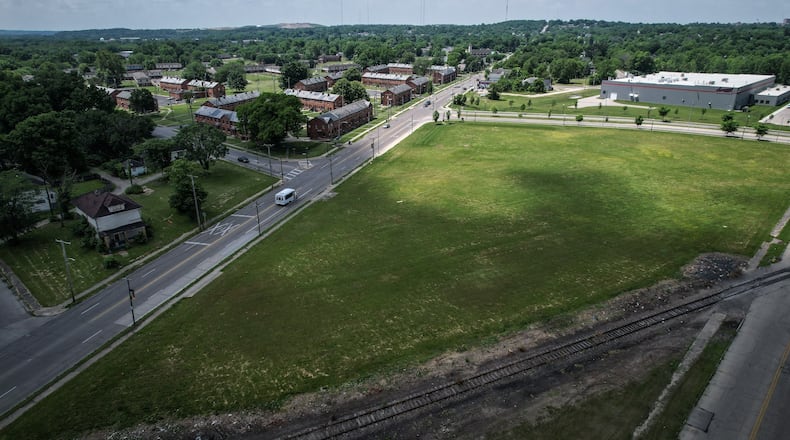The 4.3-acre project site, located at Germantown and McCall streets in the Miami Chapel neighborhood, was formerly the NIBCO foundry, which ceased operations decades ago.
Credit: Jim Noelker
Credit: Jim Noelker
The city acquired the property in 2002 and demolished the former foundry in stages.
Part of the former foundry site, west of S. James H. McGee Boulevard, has been converted into a new $20 million facility for Economy Linen and Towel Service Inc.
Vacant land east of James H. McGee Boulevard is expected to become the new market and pediatric clinic.
The Dayton City Commission this month approved a $500,000 grant to help create the new healthy family food market, which will be at 1701 McCall St.
The $500,000 city grant from the West Dayton Development Fund will help pay for building improvements, machinery and equipment and electrical, plumbing and HVAC systems for the market, said Dayton City Manager Shelley Dickstein.
This project, which is associated with Dayton Children’s west campus, will improve access to healthy food options, workforce development opportunities and mental health services, Dickstein said.
“This is another really exciting investment that will be occurring in West Dayton,” she said.
West Dayton is a food desert, and the market will be in a location that is convenient and accessible to many residents, including moms who do not have reliable access to transportation, according to Dayton Children’s.
The space is expected to have a coffee bar and smoothie shop. Dayton Children’s expects to operate a pediatric health care clinic in the same building to meet the needs of local kids. The project is expected to cost around $8 million.
The market site is across the street from DeSoto Bass, which is GDPM’s largest and oldest public housing complex. GDPM is working to replace all of the apartments in DeSoto Bass with new housing units.
Patrick, with the local public housing authority, said West Dayton has seen about $90 million in committed investment since 2018. She said that area has not seen this level of investment in a very long time.
“We’re addressing two needs — we’re addressing food insecurity and we’re addressing potential health disparities,” she said. “It’s significant for West Dayton.”
About the Author



